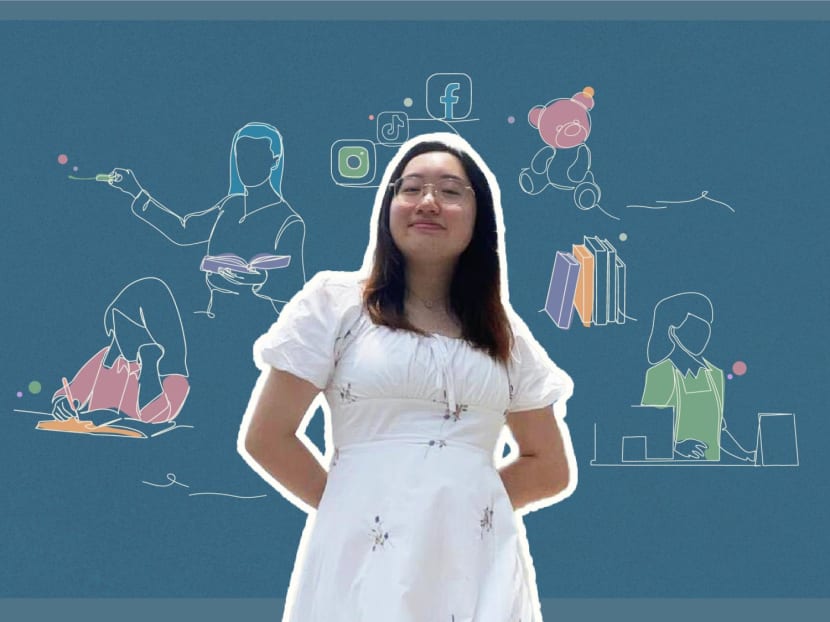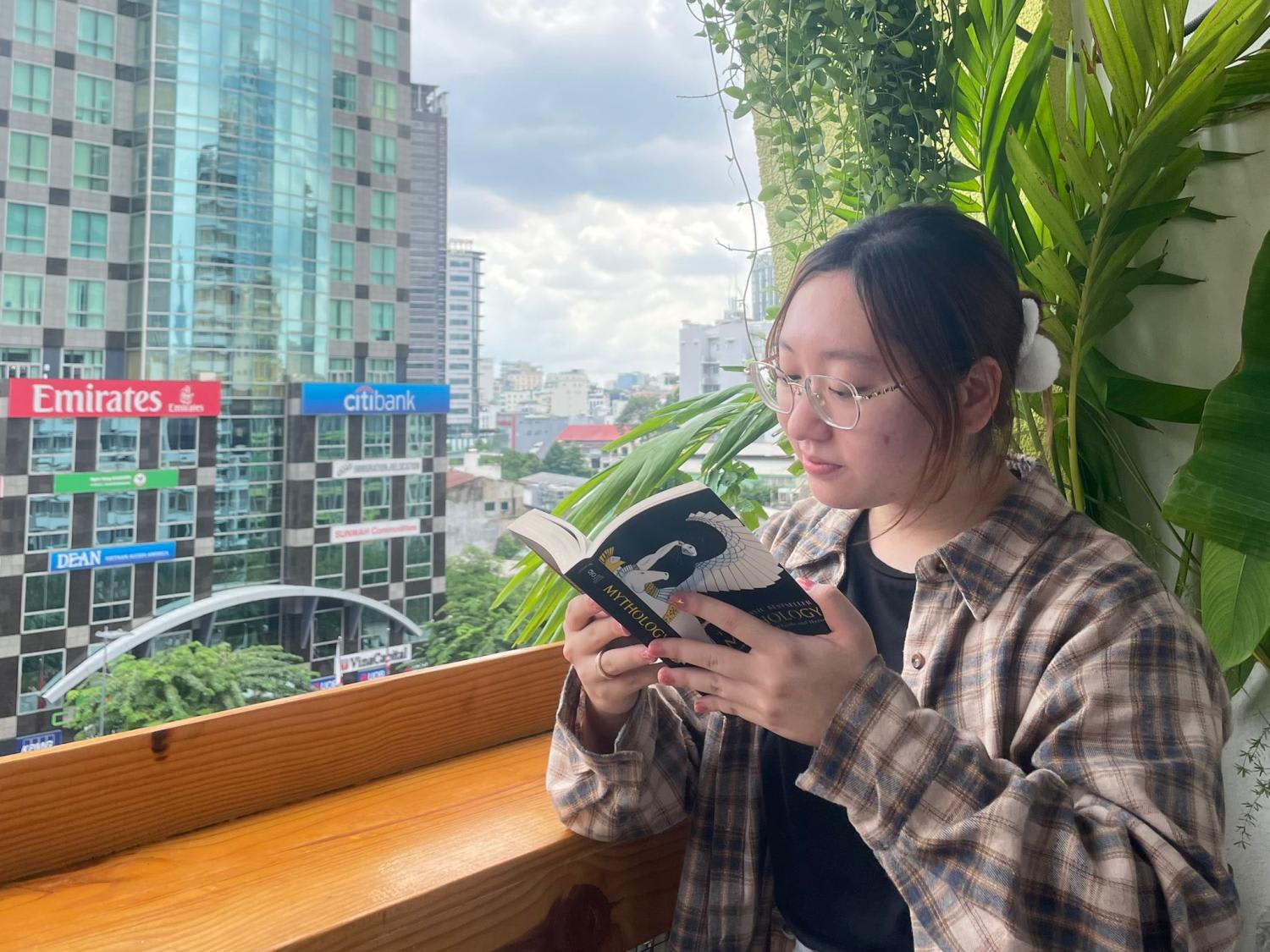Gen Z Speaks: At 22, I've already had 12 part-time jobs. It's been hard, but it's prepared me for 'real' working life
“You are already failing Maths, and you still don’t want to attend remedial class?” my Secondary 3 teacher asked. But it's not that I didn't want to go — rather, I couldn't.

Since the age of 15, Gen Z Speaks writer Jaslynn Wong Jing Ting has tried her hand at a wide variety of part-time work, from retail sales to tutoring, banquet running and even warehouse packing.

This audio is AI-generated.
“You are already failing Maths, and you still don’t want to attend remedial class?”
I clenched my fist in frustration at my Maths teacher’s sceptical expression and tried to explain that it wasn’t because I didn’t want to go for his after-school class — rather, I couldn’t. I had to work.
When I turned 15, my father gave me an ultimatum: Find a part-time job or go without pocket money. Both my parents had started working part-time when they were 15, and my father in particular wanted to teach me the value of money and the importance of being independent.
I fought this at first. I questioned my father resentfully, slamming his decision as being unfair.
I’ll admit that I wasn’t a stellar student, but neither was I extremely “free” and lazing around at home. I was barely able to cope with my studies and CCA. How was I going to balance part-time work on top of everything?
But my father refused to budge. Eventually, I caved and got a job at a fast food restaurant.
For all of Secondary 3, I couldn’t go for after-school classes and missed several CCA events. Many of my teachers were concerned. Some suggested I apply for financial assistance or bursaries from the school.
However, I had no choice but to decline as I wasn’t working to support my family financially, but rather it was a decision stipulated by my father.
MY FIRST LESSON
I quickly learnt my first lesson: Balance is key.
It took me eight months of working four days a week before I broke down. Seeing how much effort I’d put in trying to juggle everything, my father relented. I transitioned to working once a week and on holidays instead.
Perhaps this is why my younger brother was later spared from this “torture” when he turned 15.
Despite my initial reluctance, I soon found that I enjoyed the newfound financial independence. I liked being able to buy whatever I wanted, whenever I wanted, without having to ask permission or justify myself to my parents.
This spurred me to try a wider variety of jobs, from retail shop assistant to tutor to banquet runner and even warehouse packer.
Now, at the age of 22, I’ve racked up experience in over 12 different roles and positions — only two of which were internships.

WHAT I’VE LEARNT ON THE JOB
Taking on all these jobs wasn’t easy, but I gained a lot from each one.
Firstly, "if you never try, you’ll never know".
My parents worked hard to instill this philosophy in my brother and I. This mantra taught me that it’s alright to try different things without succumbing to the pressure of trying to excel or be perfect at each one.
Going through this trial and error taught me important things about myself. For example, I struggle with jobs that require long hours and lots of “mindless” repetitiveness — I need mental stimulation.
Secondly, I’ve learnt to be intentional about how I spend my time.
Because of all my jobs, I’ve often had to miss friend gatherings, family dinners, and more. I quickly realised that I’ll never have enough time to do everything I want. I had to sort out my priorities.
For example, I refrained from joining interest groups that required a high level of commitment and would potentially clash with my work schedule.
Part of this was learning the importance of scheduling time for rest.
I used to force myself to push through gruelling daily schedules, often sleeping at very late hours after school or work and waking up early for classes or morning shifts. I remember falling sick or ordering GrabFood because I was too tired to go buy food, which ate into my work earnings.
Working hard is important, but working non-stop will burn me out.
Thirdly, I’ve learnt to be confident in my own abilities.
Why is this important? Because nobody knows about your achievements as well as you do. Keeping a record of your skills and accomplishments via something like LinkedIn (my personal choice) makes it easy for you to populate and curate your resume or portfolio.
My hack for this is to record down any milestones immediately after I’ve achieved them, so I’m less likely to forget all about it later on.
I used to struggle with this, worrying “What if I come across as arrogant or showy?” But if I don’t show up for myself, who will?
My many jobs also helped me to practise speaking up for myself proactively and clearly about potentially awkward or sensitive topics. This is especially important when it comes to negotiating your salary for internships or full-time jobs in the future.
For example, I learnt much earlier than my peers to always clarify the amount of leave dates and sick leave you’re covered for. After all, falling ill (or just wanting a break!) is inevitable.
MONEY, MONEY, MONEY
While I appreciate everything I’ve learnt, there are also certain downsides to hustling as hard as I did from such an early age.
At 18, I started getting anxious when the amount in my bank account dropped below a predetermined figure in my head. I would get antsy, stressed and distracted by it.
It wasn’t until starting university that I learnt about money dysmorphia.
Also defined as money disorder, this term describes acute insecurity over one’s financial situation, even if it’s stable. Studies find this is especially prevalent among younger generations, especially Gen Zers, likely due to the influence of social media.
One way I’ve learnt to deal with it is by keeping track of my expenditures, so I’m always aware of exactly where my money is going. So whenever I take out a portion for, let’s say, my Japanese cards and toys sourcing business, I know I’m not “wasting” money — rather, I’m investing it.
Resources like Tam Kaur’s Self Obsessed podcast also showed me that my money dysmorphia originates from my emotional understanding of money, rather than just my logical attitude towards it.
For example, the “abundance mindset” helped me understand and accept that there are sufficient resources and opportunities for everyone to succeed, and I will always be able to earn enough for my needs.
This helped me to reshape my thinking, to be less anxious and instead spend more time living and appreciating my youth.

PUTTING MYSELF FIRST
After years of practice, it’s now a lot easier to juggle work and school, but my life isn’t perfect and worry-free.
I still overwork myself occasionally or sacrifice my rest time just to earn that extra buck, only to instantly regret it afterwards. My friends joke that I’ll probably have a less “insane” work life when I actually start working full-time.
But ultimately, I’ve learnt to choose myself first. This means working my schedule around my needs and priorities, rather than blindly accepting every invitation and offer that comes my way, especially when I need to decompress and get some “me” time.
I’m proud of myself for working hard to provide for my own needs, but taking care of myself is something worth being proud of too.
ABOUT THE AUTHOR:
Jaslynn Wong Jing Ting, 22, is a third-year English literature student at the National University of Singapore. In rare moments when she’s not hustling 24/7 or brainstorming for new ways to get that bread, she enjoys Switch games and avocado smoothies.








